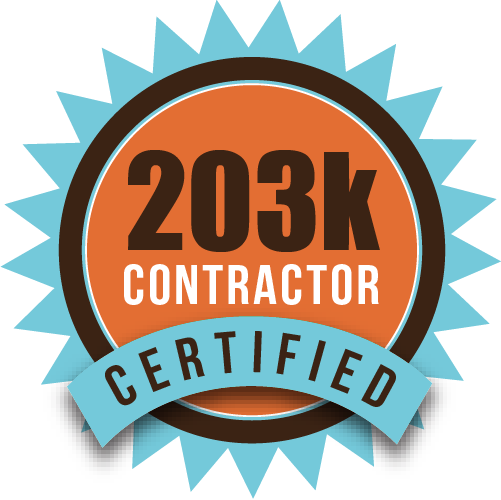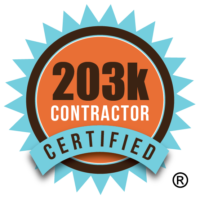An FHA 203k loan is basically the same as a regular FHA (called a 203b), but with a twist. An FHA 203k loan permits borrowers to include repair/improvement money into their mortgage used to repair, improve, or upgrade their home. With this loan option, borrowers can quickly and easily tap into cash to pay for property repairs or improvements, such as those identified by a 203k Consultant, FHA appraiser or home buyer preferences (see list below). There are two types of FHA 203k Loans: Standard & the Limited. The FHA 203k Standard loan is more like a construction project, and the FHA Limited 203k Loan is for minor improvements.
An over-simplified example:
$200,000 purchase price
+ $75,000 for renovations
= $275,000 loan amount
(3.5% down payment is $9,625)





